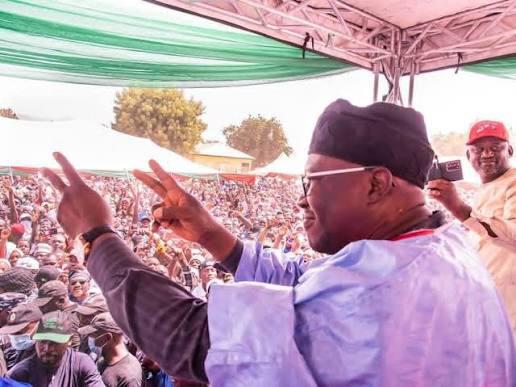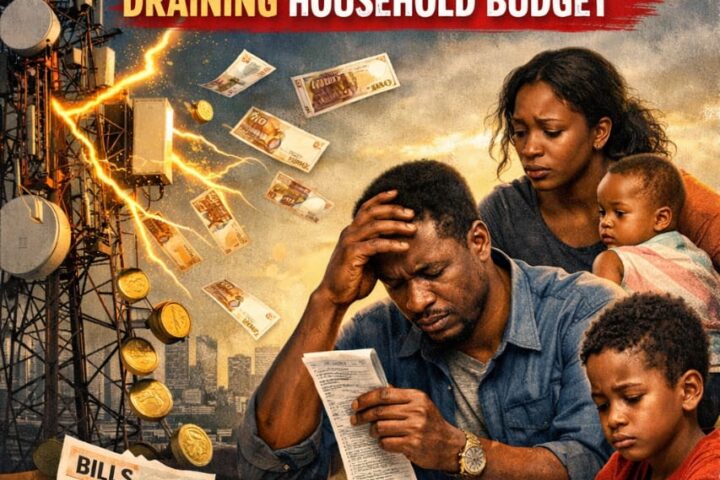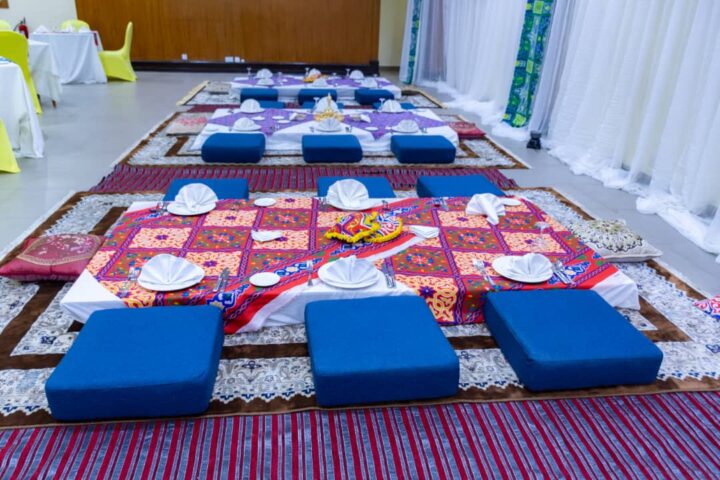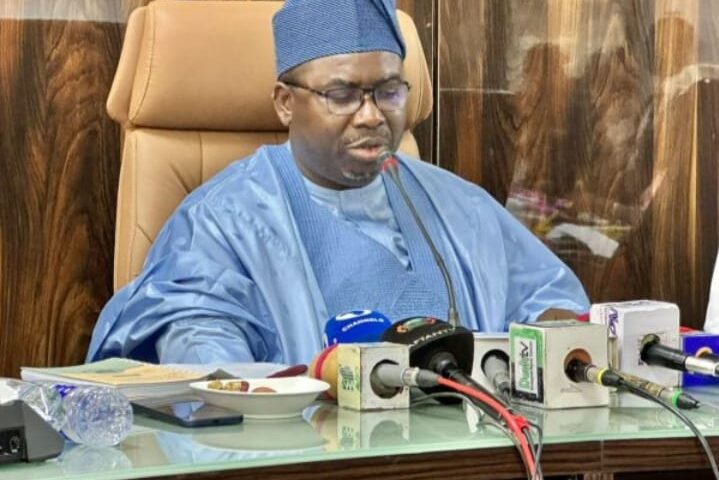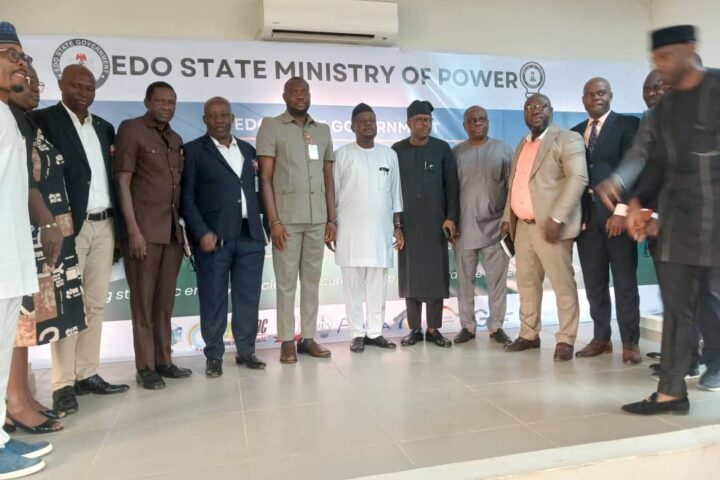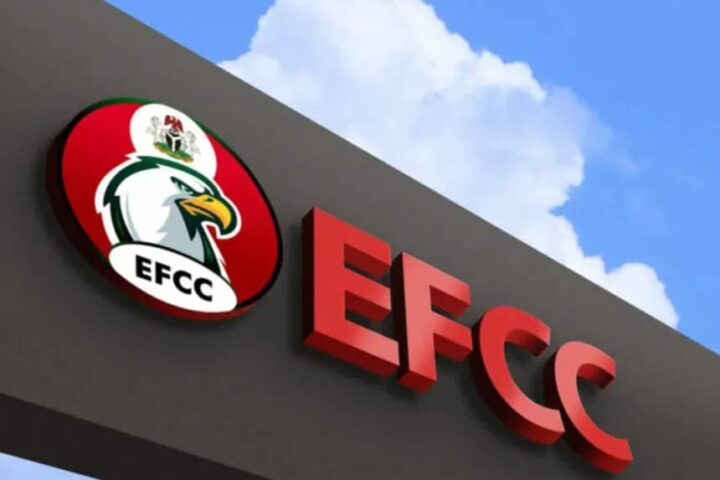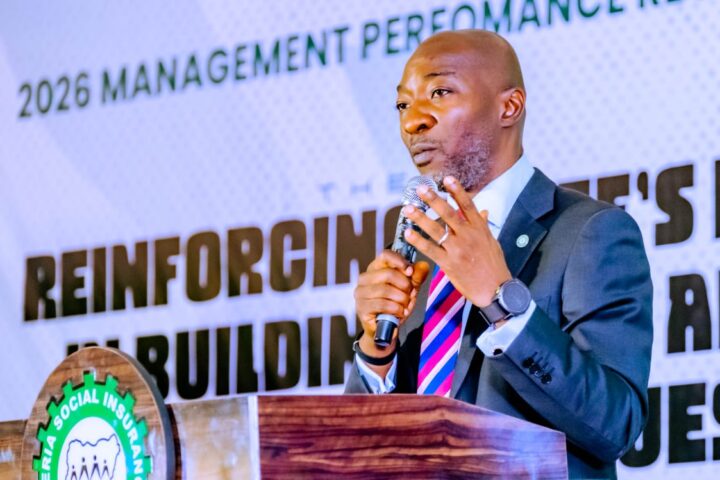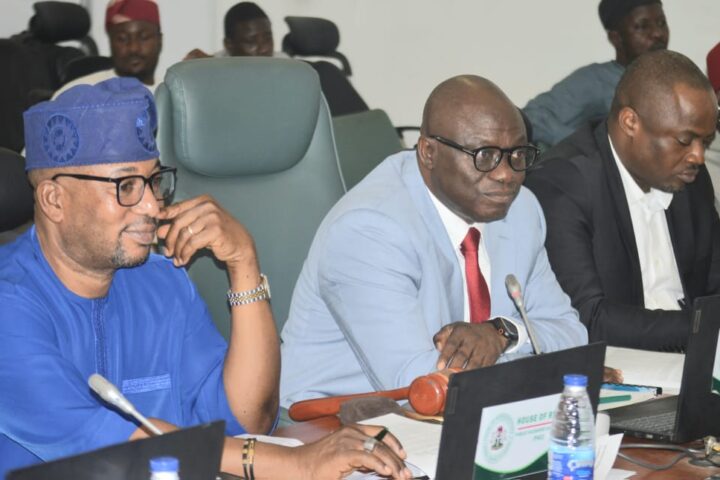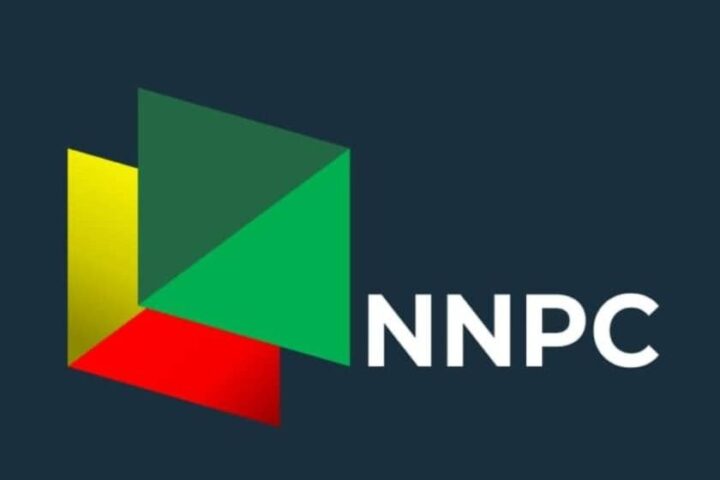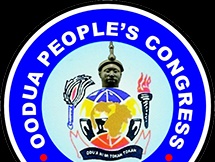
(Being extracts from a speech presented as voicenotes to the EkimogunYouths Connect’s meeting on 9/5/2021)
Permit me to express profound gratitude for the opportunity given to me to share my thoughts and position on the way forward for Nigeria at this critical stage in the history of the country.
There is perhaps a consensus that Nigeria is passing through an unprecedented crisis, which threatens its survival as a united entity. I see your choice of today’s topic as part of the legitimate attempts at resolving the problems plaguing Nigeria.
REFORMULATION OF YOUR TOPIC
The topic you have given to me to examine is: “The actualization of Yoruba/Oodua Nation: A Chase of Shadow or a Reality?”
Your choice of topic clearly falls within the secessionist agenda. If a cause is desirable, laudable or altruistic, that there are difficulties in its achievement should not deter the proponents, if they are principled and committed. Therefore, I think the question ought not to be whether Yoruba/Oodua Nation is realizable or unrealizable. I think the question should be even if Yoruba/Oodua Nation is realized, is it the solution to the socioeconomic problems facing the masses in the South West? I have therefore reformulated the topic to guide our discussion as follows:
“IS YORUBA/OODUA REPUBLIC THE SOLUTION TO SOCIOECONOMIC PROBLEMS FACING THE MASSES IN THE SOUTH WEST?
That I have reformulated your topic does not mean I would avoid addressing the concern in your original topic. I would frontally answer it.
Though it may be at a huge cost of unimaginable gory consequences of civil war; even though it may not be possible to arithmetically predict when it may be, the Yoruba/Oodua Republic may be actualized, if the proponents do not give up.
Marx explains that ‘history does nothing, possesses no immense wealth, wages no battles. It is man, real, living man who does all that, who possesses and fights; history is not, as it were, a person apart, using man as a means to achieve its own aims; history is nothing but the activity of man pursuing his aims’ (Marx, The Holy Family, Chapter 6 (1846). It is therefore important we properly consider, assess and reflect on the aims we seek to pursue with our individual and collective life, which is very short indeed.
SELF-DETERMINATION IS UNIVERSALLY CLAIMED AS A RIGHT – but independence only comes through war (Eritrea, South Sudan, Western Sahara, etc etc)
Permit me to make it clear that, though I am not a proponent of secession as the ultimate solution to the socioeconomic problems plaguing the masses, I am, all the same, in principle, not opposed to it. This is because I accept that calls for secession fall within the concept of the struggle for self-determination, which is universally recognized as a right.
Though under international law, self-determination is technically understood in two categories as internal or external self determination, Articles 1 and 55 of the UN Charter (that is UN Constitution), as well as Article 20(1) of the African Charter for Peoples and Human Rights, expressly recognize the rights of peoples to self-determination.
Article 1 sub (2) of the UN Charter provides:
The purposes of the United Nations are:
(2). To develop friendly relations among nations based on respect for the principle of equal rights and SELF-DETERMINATION of peoples, and to take other appropriate measures to strengthen universal peace.
Also, Article 20(1) of the African Charter, which has been domesticated as a law enacted by the National Assembly, provides:
All peoples shall have the right to existence. They shall have the unquestionable and inalienable right to self-determination. They shall freely determine their political status and shall pursue their economic and social development according to the policy they have freely chosen.
Though I do not see a breakup of Nigeria as the solution to the problems confronting masses, I maintain, all the same, that the continued peaceful co-existence of peoples and societies is conditioned upon the continued collective defence of universally recognised human rights. Where a group(s) of people feel oppressed within a nation-state, they should not be repressed or suppressed for agitating to leave such a relationship. Provided they adopt peaceful and non-violent methods, they should be allowed to fully exercise their fundamental right of expression and peaceful action to advocate a re-arrangement of society in ways in which they feel would enable them to fully actualize their dreams and aspirations. No room should be given for tyranny to triumph under the pretext of protecting ‘national’ interest. ‘National interest’ always means the interest of the rich. So the poor always have to suffer poor pay, non-payment of salary arrears and other indignities for the non-salaried segments – in the interests of the nation or state
WOULD YORUBA/OODUA REPUBLIC SOLVE THE SOCIOECONOMIC PROBLEMS BEING CONFRONTED IN NIGERIA?
I am of the opinion that before people and groups like EkimogunYouths Connect devote their emotions, resources, and time to the pursuit of the Yoruba/Oodua Nation, the question that should be asked is: would the creation of the Yoruba/Oodua Republic solve the socioeconomic problems confronted within Nigeria in the South West states that would ultimately constitute the Yoruba/Oodua Republic?
Where the answer is ‘yes’, then the cause of Yoruba/Oodua Republic should be pursued with vigour. Where the answer is ‘no’, then it poses a challenge to determine an alternative cause(s) of action.
The first issue therefore to address is what are the identified problems in justification for the advocacy of Yoruba/Oodua Nation/Republic as articulated by the proponents?
I have taken time to read online publications, interviews, and to listen to several video clips by some proponents of Oodua Republic. Their justification appears to include the following ‘evils’ or problems being experienced by Yoruba masses within Nigeria at the moment:
– Poverty
– Unemployment
– Insecurity: kidnapping, armed banditry, armed robbery, youth gangsterism, threats to kill and actual killings with impunity without any consequences; Incapacitation of State Governments despite being called Chief Security officers of the States;
– Leadership bankruptcy at the national level
– Collapse of institutions, including collapse of the education sub sector, loss of excellence, etc
– Nepotism in appointments to public office at the national level
– Land grabbing: Driving people away from farms, raping, maiming and killing
– Destruction of farmlands by cattle-herders
– Open livestock grazing
– The open declaration of ‘born to rule’.
LET US EXAMINE SOME OF THE PROBLEMS IN ORDER TO DETERMINE THE EXTENT TO WHICH THEIR EXISTENCE OR SOURCE IS LINKED WITH THE FACT THAT THE SOUTH WEST STATES REMAIN A PART OF NIGERIA
Let us begin with the interrelated issues of unemployment and poverty.
Widespread unemployment and poverty are facts that cannot be denied. Unemployment and poverty are pervasive in the South West States just as they are pervasive nationally. But I contend that the breakup of Nigeria into smaller units of sovereign states along ethnic lines would not solve the problem of unemployment and poverty.
The cause of unemployment and poverty in the South West (and nationally) is the looting of public vaults by members of the ruling class and the neoliberal policy of shifting responsibility for economic development on the private sector.
Those who enrich themselves and impoverish Yoruba masses in the South-West today are not Hausa/Fulani or Igbo. Those responsible for the unprecedented poverty in the South-West are Yoruba members of the ruling class, who are individually richer than the states they govern. They have designed policies and laws such as the Governors and Deputy Governors Pension laws, for their continued enrichment for life even after they leave public office, with the consequential eternal impoverishment of Yoruba masses.
They provide the Yoruba masses with collapsed hospitals which they, the Governors do not patronise for the slightest of ailment. They would rather go abroad for medical care. One of them, unfortunately though, died in a private hospital, as a result of complications traceable to COVID-19, at a time he could not travel abroad. He could not seek medical treatment in any of the collapsed public hospitals in his State, after being in power, as Governor, for two tenures. They provide the Yoruba masses with piggery-like schools they cannot allow their children to use as restrooms. The Governors prefer to fly private or chartered jets rather than pay salaries.
In the context of these realities, can we truly say that the impoverishment of Yoruba masses is a product of the South West states remaining within Nigeria? I think not. Is there any guarantee that after the creation of Oodua Republic, members of the Yoruba ruling class would change? I think not.
The solution to unprecedented and pervasive poverty lies in developing a poverty reducing and income inequality reducing programme, so that the wealth of the society would serve the basic needs and welfare of ordinary people rather than serving the greed of a few for primitive accumulation and dispossession of the wealth that belongs to all.
The poverty reducing and income-inequality reducing programme would be based on employment creation on decent salaries, proper funding for state schools, hospitals and health centres and ensuring that all workers have properly protected trade union rights. It would also include policies that any elected public officer should earn no more than the national minimum wage plus incidental expenses; direct labor for execution of public projects, opposition to contractocracy, prohibition of medical tourism, children of elected public officers to access education only within Nigeria, reversal of privatization of public assets, etc.
Leadership Bankruptcy At The National Level
The leadership of the country at the national level is constituted by the APC of which a Yoruba is the acknowledged Leader. The National Assembly is dominated by the APC legislators and other legislators of the PDP, and they include Yoruba legislators. The Vice president, some Ministers, Advisers, aides, etc administering Nigeria at the national level include Yorubas who are prominent members of the APC or who were nominated by prominent leaders of the APC who are Yorubas. They all accept and are implementing neoliberal policies of privatization, increase in electricity tariffs, fuel price, VAT, etc. These are the poverty and unemployment-fuelling policies, which constitute serious hardship for the masses. When they privatize public enterprises, for example, capitalist members and/or their stooges, from all ethnic groups are the beneficiaries, not the masses of any ethnic group. The quality of leadership being provided at the national level within Nigeria would merely be replicated in the new Yoruba/Oodua nation, if and when it is actualized. These poverty-fuelling policies are being implemented by all the states in the South West. Is there any state in the South West trying to implement enduring employment creation programmes? I am not aware of any.
Collapse of educational institutions
The collapse of educational institutions in the South West cannot be attributed to the South West States remaining within Nigeria. For example, two Yoruba states (Oyo and Osun States) could not manage Ladoke Akintola University of Technology (LAUTECH) at Ogbomoso. It was completely run aground for a time. We may individually reflect on the state or status of other institutions in the South West. Indeed, the struggle for the position of the Vice Chancellor in University of Ibadan, UI, a Federal Government-owned institution, compelled the Federal Government to dissolve the Council. The struggle for the Vice Chancellorship position in U.I. is the mirror to see the nature of the future struggles between sub ethnic groups within Yoruba/Oodua Nation, if actualized. In the University of Ibadan, there are forces arguing that only an Ibadan indigene should be the next VC. Therefore, collapse of institutions cannot be a sufficient justification for the dismemberment of Nigeria and the creation of Ooodua Republic because even within the South West, institutions have collapsed.
Insecurity
Chief Duro Onabule, a Veteran Journalist, in an online article helps to identify that in the South West:
“The young Yoruba elites who want to take Yoruba out of Nigeria complain of many evils in the nation. True. But these evils too exist among us and Yorubas are not exempted from them.
Remember Soka Hill discovered in Ibadan where human parts were being sold to rich clients for years – its in Yorubaland. Same has been found in several other places in the Southwest. An Islamic slave labour camp was discovered recently in Ibadan, almost as bad as the ones in the North. Human “poultries ” have been found in Akute, Ogun State, and in Abeokuta etc where teenage girls are kept by super madams to be paired with young men to breed like rabbits and the offsprings sold to rich clients for money. How about cultism and cultic warfares in Ikorodu, Lagos, Ibadan and Abeokuta which are regular features of news items?”
I also think that it is an illusion to assume that once (or if) the Oodua State is able to have effective physical security architecture, it would be immune from the influence and sources of physical insecurity in the remaining emerging Republics and surrounding countries. The emerging Republics and countries may still need collaborative efforts.
However, arguing that elements of physical insecurity exist in the South West States and that the Oodua State, if formed successfully, would not be immune from the influence and sources of physical insecurity in the remaining emerging Republics and surrounding countries does not mean that the unprecedented level of physical insecurity in the South West and in other parts of the country is acceptable or tolerable.
I maintain that it is legitimate to stoutly oppose and condemn (and I stoutly oppose and condemn) the following obnoxious values, criminal acts, trade practices and public policies, at the level of the Federal Government, State or Local Governments within Nigeria:
– Pervasive unemployment. (at least, half of young people cannot find a decent job).
– Poverty. (It is now estimated that 60% of Nigerians do not have enough money to eat properly).
– The ethnocentric mentality embedded in open declaration of the notion of ‘born to rule’ by some ethnic bigots.
– Land grabbing: Driving people away from farms, raping, maiming and killing
– Destruction of farmlands by cattle-herders
– Open livestock grazing, which often leads to destruction of farmlands.
– Nepotism in appointments to public office, either at national or sub national state and local government levels, contrary to the Constitution. Section 14(3), CFRN, 1999, as amended, provides that “the composition of the Government of the Federation or any of its agencies and the conduct of its affairs shall be carried out in such a manner as to reflect the federal character of Nigeria and the need to promote national unity, …to command national loyalty, thereby ensuring that there shall be no predominance of persons from a few States or from a few ethnic or other sectional groups in that Government or in any of its agencies”. Section 14 (4) of the CFRN also has similar provision as far as the composition of the State and Local Governments and their agencies is concerned. the composition should be “…in such a manner as to recognize the diversity of the people within its area of authority and the need to promote a sense of belonging and loyalty among all the peoples of the Federation”.
Though the last item above, appointments into key offices in the public service is essentially elitist in character, the constitutional provisions guiding such appointments ought to be observed to prevent feelings of exclusion and to promote inclusiveness in order to undermine divisive politics and movements. Where they are not observed, it would be legitimate to resist for the purpose of the values espoused in the constitutional provisions quoted above.
THE PROBLEM OF ETHNIC MINORITIES
How will ethnic minorities be treated in a state that is built on the Yoruba Nation? States based on nations almost always emphasize ethnicity. This leads to great conflict – like the break-up of the former Yugoslavia or the civil war in South Sudan. A Yoruba Nation could still have conflicts based on Yoruba sub-ethnic groups within each of the States in the South West. In Lagos State, there are prominent families whose grandparents were Tapa from Niger State. Would such people be expelled from Lagos State on the ground that they are not Yoruba?
DEMOCRATIC PROCEDURE IN AGITATION FOF YORUBA/OoDUA REPUBLIC
It is also important to insist that no matter how laudable the self-claimed altruistic justification of the separatist agenda may be, the proponents of Oodua Republic should be democratic in their approach. They need to obtain the democratic mandate or consent of majority of the people in the South West in a referendum rather than imposing themselves and their idea of an Oodua Republic on the people. Before anybody claims to be the leader of an ethnic group, he/she should have been elected by majority of the members of that ethnic group. Being elected leaders or spokespersons of an association should not be mistaken for being elected leaders of an ethnic group. Otherwise, even where the proponents of Oodua Republic succeed without the democratic mandate of majority of members of the ethnic group, it would mean that ultimately, the South West would be governed dictatorially by the whims and caprices of a few self-imposed individuals. That would mean enslavement of the people. The proponents of Oodua Republic have a duty to convince people in the South West and the world that an oodua Republic would be an example of a democratically run society, which gurantees freedom of expression, not a totalitarian society where the right to dissent means being blackmailed, framed, killed or tried and condemned to prison. It is not only the attainment of set goals that matters; the procedure and manner of attaining the goals also matter in determining the quality of governance in the proposed Republic.
WHAT PROGRAMME IS PRIMARY IN RESOLVING THE PROBLEM OF POVERTY: ETHNIC NATIONALISM OR FIGHT FOR IMPROVED WELFARE AND SECURITY OF ORDINARY PEOPLE?
The bane of socio-economic development in Nigeria is not ethnic pluralism. It is the existing unjust, inequitable, vicious and exploitative capitalist socio-economic system which prioritizes the greed of a few over the need of the poor who are in the majority.
In other words, the fundamental cause of lack of development (measured in terms of the welfare of ordinary people)? is not ethnic division/pluralism; it is division along class lines.
The fundamental cause of poverty and degeneration in the society is not related to divisions between nations and nationalities but conflicting interests between the rich and the poor, the ruled and the rulers. The interests of the poor classes in all ethnic nationalities are the same, just as the interests of members of the ruling class of all nationalities are equally the same. But the capitalist economic arrangement being operated ensures that the rich classes not only monopolise societal wealth at the expense of basic needs of ordinary people, they also use their wealth to impose to capture political power and influence.
As Lenin[1] once explained:
On the hoards of joint stock companies we find capitalists of different nations sitting together in complete harmony. At factories, workers of different nations work side by side. In any really serious and profound political issue, sides are taken according to classes, not nations.[2]
Numerous examples could be cited to drive home the point made by Lenin: Leading members of the two major political parties, at all levels of government, legislative and executive, are from different ethnic groups. They are usually united against the masses in the imposition of obnoxious policies, earning of disproportionate salaries and sharing of contracts. They are never divided on policies such as perennial increases in the prices of petroleum products; non-payment of national minimum wage; increase in electricity tariffs, non-payment of salaries, and so on. On each of these issues, positions are taken, not on the basis of ethnic affiliation but on the basis of class status. The poor, including workers, the unemployed, farmers, artisans, traders, and so on, should therefore not be hoodwinked by the deceptive bellicose nationalism of the bourgeoisie or aspiring bourgeoisie.
Professor Taiwo Alimi[3] has shown that when Nigeria is compared to India, ethnic pluralism and size of population cannot be valid reasons for Nigeria’s socio-economic backwardness. According to him,
“India is more populous, has larger number of ethnic groups, larger number of religions than Nigeria. Both are colonized by British and are not significantly different on age of independence. If all these factors affect development negatively, India should be less developed than Nigeria but India is far ahead of Nigeria in development. India manufactures and export cars, has good medical facilities patronized by foreigners etc. What then are the likely factors for differences in development?
Some other factors are corruption and indiscipline. It is in Nigeria that highly corrupt individuals are celebrated as heroes. Punishment is meant only for the erring downtrodden not the influential, thereby encouraging bad behaviours among the elites and the ruling class.”
Find below the comparative analysis between Nigeria and India, according to Prof Alimi.
.
COMPARISON OF SOCIO-ECONOMIC CHARACTERISTICS OF NIGERIA AND INDIA
| Characteristics | Nigeria | India |
| Population size | 160 million | 1.2 billion |
| Number of ethnic groups | 250 | > 2,000 |
| Colonizer | British | British |
| Age of independence | 52 years | 65 years |
| Multiplicity of religion | 2 are prominent (Islam and Christianity) | Many |
Source: Prof. Taiwo Alimi (supra).
At the same time, the point must be made that India does not provide a path for the Nigerian governments to follow. Like Nigeria, it provides horrendous poverty for many and extreme wealth for a few. Recently, this has been mixed with bloody religious conflicts with Hindu Chauvinism encouraged by the National President.
I therefore call on members of Ekimogun Youths Connect to channel more of their efforts around issues dealing with improving the material wellbeing of ordinary Yoruba people and subject the ruling class in Nigeria (within and outside the proposed Yoruba nation) to merciless criticism as far as the criminal neglect of the socio-economic rights of the downtrodden are concerned.
We should adequately appreciate that in Nigeria today, there is class rule, capitalist class rule; not a government predicated on an ethnic group. In other words, there is a ruling class with membership from all the ethnic groups. The Federal Government is not ruling in the interest of any ethnic group. Hence, poverty is more pronounced in the North than in the South. If the central government were ruling in the interest of an ethnic group, the living standards of members of that ethnic group ought to be better than the living standards of people of the other ethnic groups.
Amcon (Asset Management Corporation of Nigeria) assumed the debt of some companies and individuals running into N5.4trn. Those who took advantage of that sum are capitalist/comprador capitalists and/or their agents from all ethnic groups. Indeed, 350 individuals were reported to be responsible for over 80% or N4.3trn of the N5.4trn debt portfolio. This means, on the average, each of the 350 individuals owns 12.3bn. It has further been disclosed that only 100 BVNs control over 60% of Bank loans in Nigeria. Those individuals are not the ordinary Hausa, Fulani, Igbo, Yoruba or the ordinary persons in any of about 500 ethnic groups making up Nigeria. Whether we use the figure 350 or 100 as stated above, it is clear that those who practically own Nigeria and are determining monopolizing the wealth of Nigeria and determining outcomes of electoral contestations are less than 1% of 200m population of Nigeria. Indeed, the fundamental cause of physical insecurity is the criminal economic and political exclusion of ordinary people of all the ethnic groups. The father of physical insecurity is economic exclusion of the masses of all ethnic groups. The mother of physical insecurity is political exclusion of the masses of all ethnic groups. Unless the welfare of ordinary people is quickly addressed, either within Nigeria as presently constituted, or within each of the geographical units that may constitute the emerging Republics, physical insecurity would continue to be a menace.
Chapter 2 of the Constitution of the Federal Republic of Nigeria, 1999, as amended, guarantees socioeconomic rights: free education, from cradle to grave; employment or unemployment allowance; free health care for all; social housing; the mandatory obligation for government to be humane, reasonable national minimum living wage, guaranteed old age care and pension, and so on. Is it the Fulani Oligarchy and/or hegemony that has prevented and tied the hands of the Governors in the South West from implementing Chapter 2 of the Constitution? Is it until they breakup Nigeria that state governments in the South West would begin to be humane to ordinary people in their states by implementing Chapter 2 of the Constitution? is it after the breakaway from Nigeria that Governors in the South West would stop taking humungous security votes they do not account for? Is it only when they breakaway from Nigeria they would stop benefiting from the Governors and Deputy Governors Pension Laws?
Nigeria is owned and governed by the prominent politicians who move cash about in bullion vans and Yoruba Politicians are prominent in that group. Class rule, not ethnic rule, is the menace disturbing Nigeria. It deprives the masses to abject poverty and many of them cannot otherwise survive than engaging in criminalities and/or serving as agents of insurgents, domestic and international. The root cause that ought to be addressed is poverty, whether within Nigeria or within Oodua Republic.
However, the notion and practice of “born to rule”, lopsided appointments, destruction of farm lands, land grabbing, Ruga, etc, must be unapologetically resisted, regardless of the quarters they may come from, particularly because they fuel divisive forces/movements.
But let nobody be deceived. The average politician is not interested in the welfare of ordinary people. They look for power by all means with a view to using it against public interest. They look for power by fuelling ethnic and primordial sentiments just to create a social base of support in their ethnic groups. Assuming there is equity in the distribution of appointments, it serves only the interest of the elite politicians. What we should be bothered about is the policy (pro people policy) that should be implemented. But politicians of all hues and ethnic groups are united in imposing anti people policies.
The Yoruba nation, within or outside the framework of Nigeria, should be built around the ethical values of Omoluabi, in government and out of government. The concept of Omoluabi shows concerns not only for the quality of life (which covers economic and political inclusion) of people of the same ethnic background but humanity as a whole, regardless of any primordial differences, in race, ethnicity, language, or religion.
To this extent, I invite you to concentrate on campaigning for the implementation of the content of Chapter II of the Constitution.
Take the proponents of Oodua Republic to task on these issues. Let the proponents put it down in writing that the Oodua Republic would be predicated on Chapter II of the Constitution. Unless commitment is expressed in writing to the implementation of Chapter II of the Constitution, those who support Oodua Nation may discover that on the long run, they have escaped the oppression of the bourgeoisie within Nigeria only to enter the embrace of the capitalists in the Oodua Republic. It would therefore amount to struggling to remain enslaved.
If members of Ekimogun Youths Connect are committed to fighting for the welfare of ordinary people in the South West States, such as the fight against increase or imposition of school fees, increase in fuel price, increase in electricity tariffs, non-payment of salaries or part-payment of salaries, non-payment of national minimum wage, and they are part of ‘where is the light campaign?’ etc, they would discover that, in reality, they need to join forces with the masses of other ethnic groups rather than the members of the ruling class in the South West States. The members of the ruling class in the South West States are actually the class enemies of the masses in the South West States.
I thank you for your attention.
Femi Aborisade, Esq.
9/5/2021
[1] V.I. Lenin, Critical Remarks on the National Question, in Collected Works, Vol. 20.
[2] V.I. Lenin,id.
[3] Prof Taiwo Alimi, “Participatory Governance: Building Synergy for Effective, Responsive, Accountable Governance for Development”, Chairman’s Opening Remarks at a Workshop organized by Jama’at Ta’awunil Muslimeen in collaboration with Friedrich Ebert Stiftung at See-Bee Hotel and Events Centre, Iwo-Ibadan Expressway, Iwo, State Of Osun on Wednesday, 24 April 2013.



